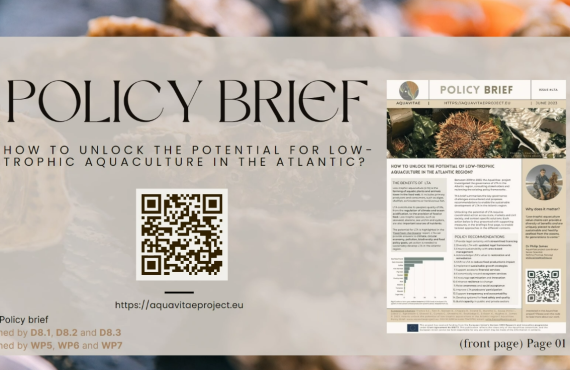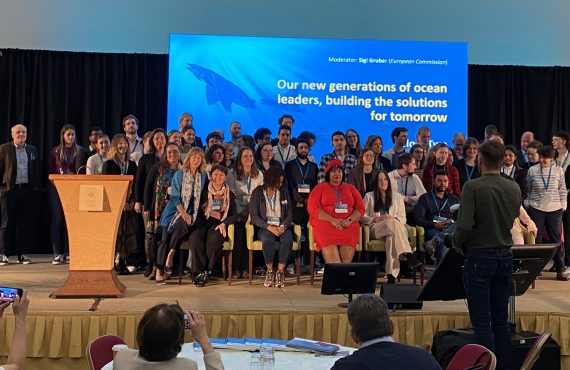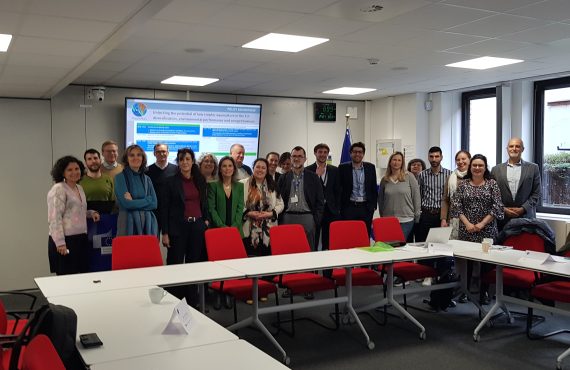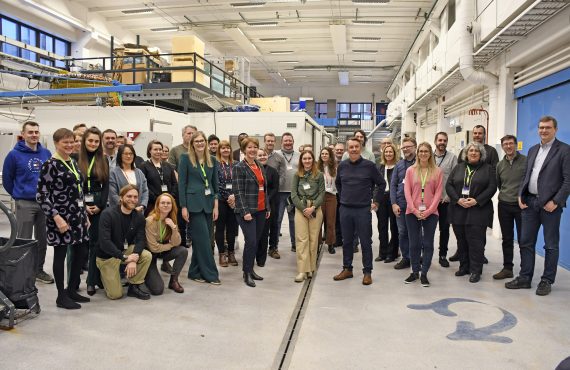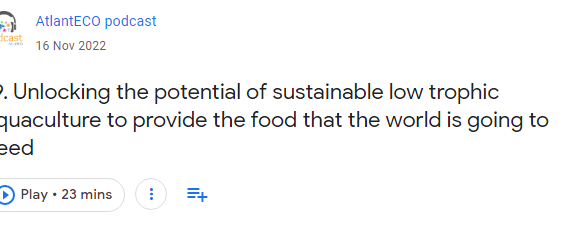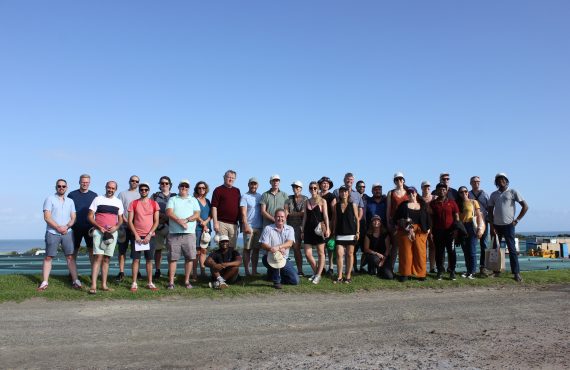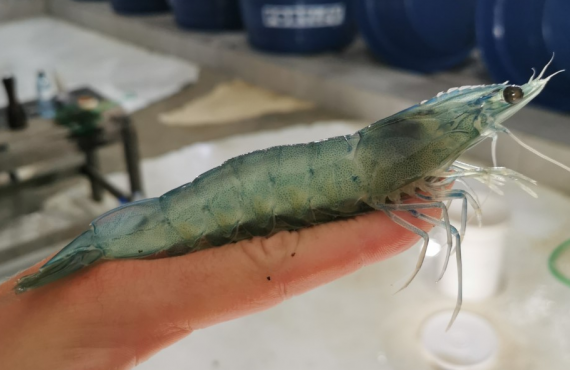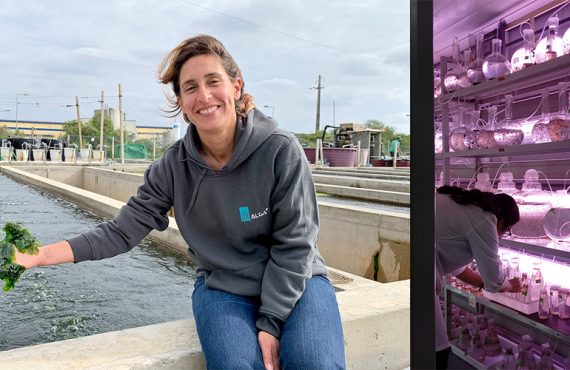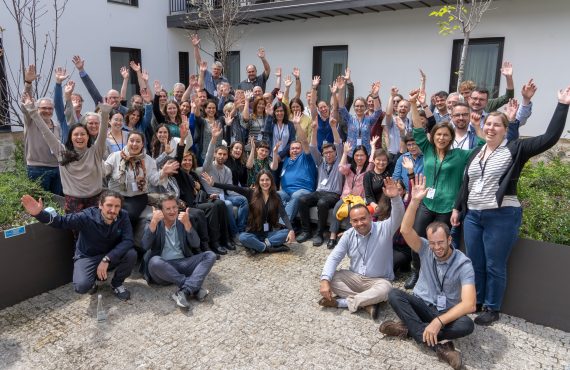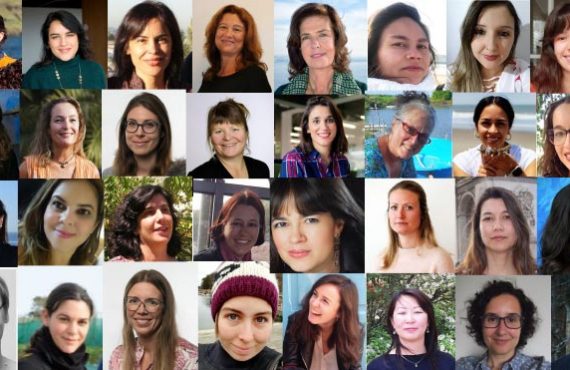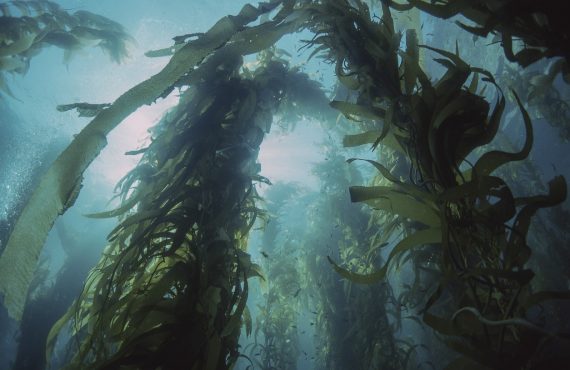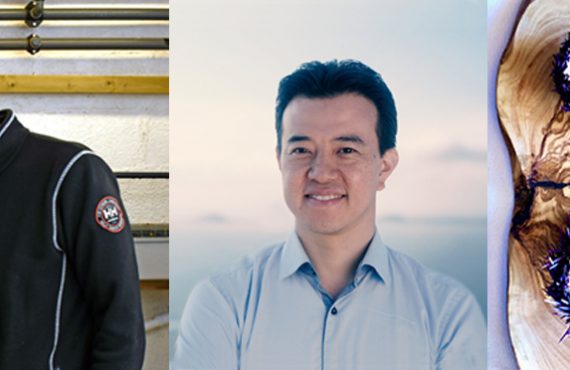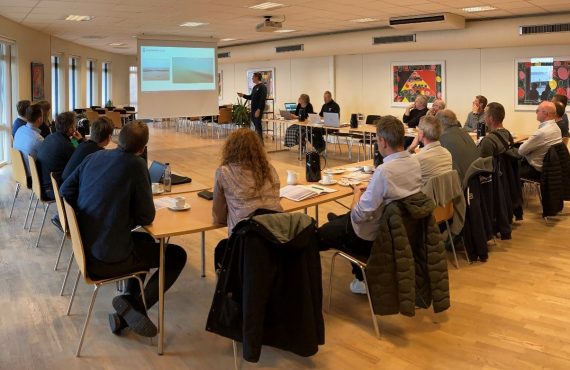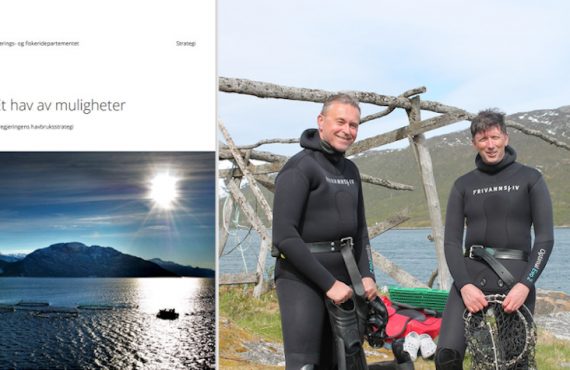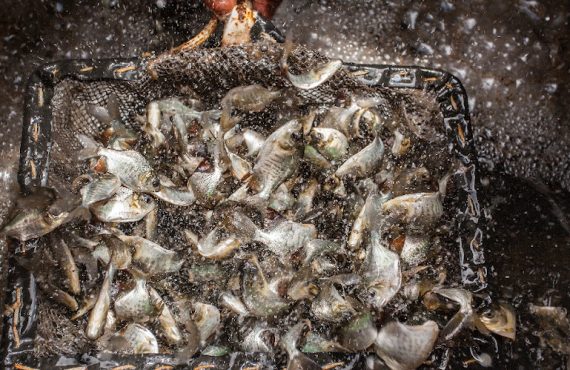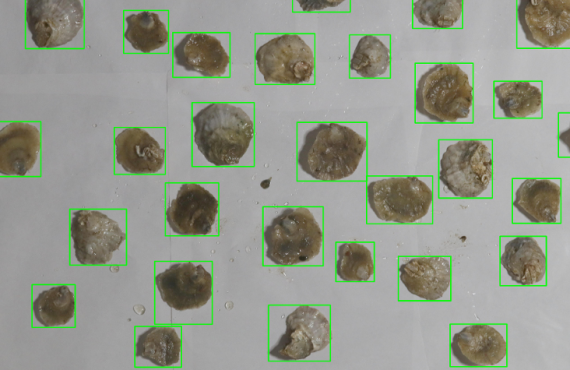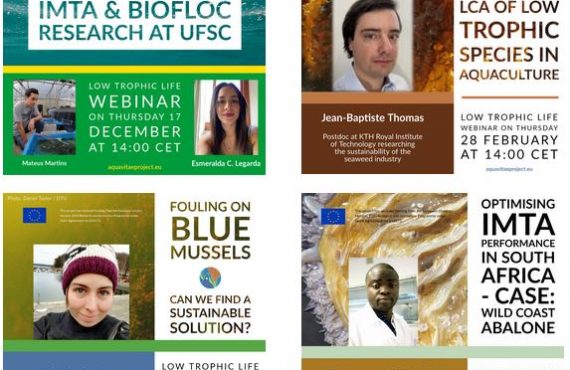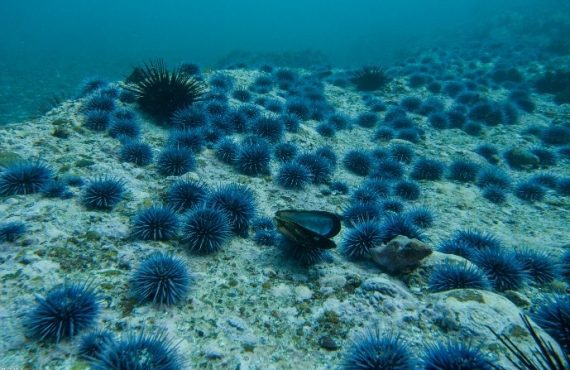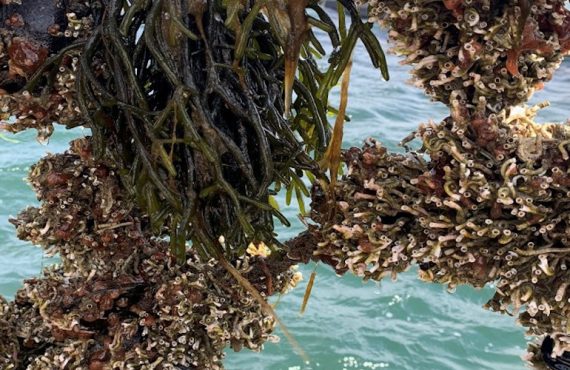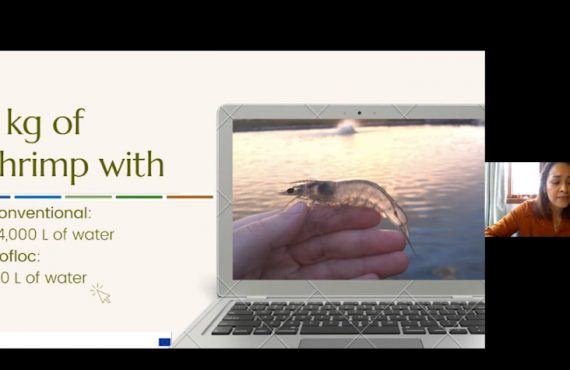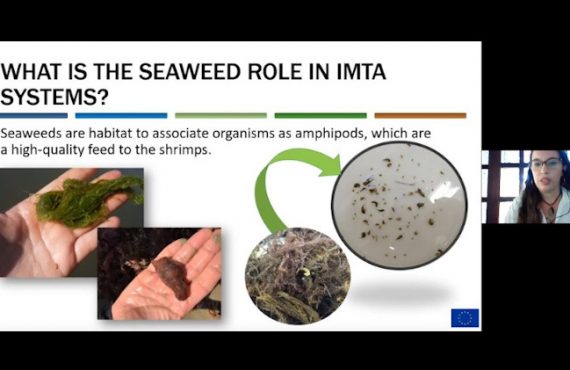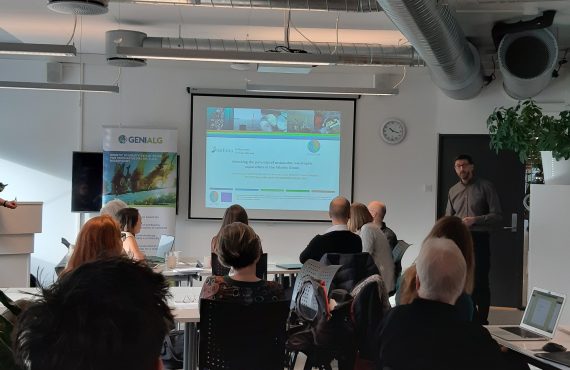Left to right: cultivation of oysters on floating pillows at the Primar Aquacultura farm in Brazil and Márcia Kafensztok managing oyster seeds. Photos: Primar Aquacultura
Márcia Kafensztok, who researches on the possibilities of Brazilian native oyster production and IMTA systems in Brazil, has been awarded first place in the Women of Agro 2021 Award, in the Small Property Category, in Brazil. The 4th edition on Women in Agro Award (Prêmio Mulheres do Agro in Portuguese) took place on the 26th of October. The event purpose is to highlight women management in agriculture business and to encourage other women to belong to an area that traditionally has been filled with men. Besides gender equality, it tries to pinpoint the relevant work of these women in social, environmental and economic terms due to their excellent approach.
Márcia leads Primar Aquacultura in Tibau do Sul (RN), the first ecological farm certified in Brasil. Although her work is based on the production of shrimp and oysters at large-scale, Márcia expects her farm to be a reference research institute. In fact, she gives to the company an academy approach in order to add education and research value.
Despite her degree in Design, Primar Aquacultura´s CEO joined the company created by her husband, an expert on the area. Unfortunately, he died and Márcia considered that closing the farm was not an option taking into account the dedication and care they both gave to the project. From that moment onward she learnt what was necessary to continue the legacy of her husband.
Role in AquaVitae
In AquaVitae, Primar Aquacultura participates in research on oyster and pond-based Integrated Multi Trophic Aquaculture (IMTA). Regarding oysters, the company will contribute to refine hatchery production for the native oyster Crassostrea gasar in Brazil by improving water quality and introducing native microalgae cultivation. Both tasks will contribute to adapt the cultivation to local conditions and curb the impacts on the ecosystem.
The transition from monoculture aquaculture to IMTA comes from the shrimp industry in Brazil as a way to diversify production and reach higher productivity. Shrimp is one of the key species for the Brazilian aquaculture sector, with 90,000 tons produced in 2019 according to the Brazilian Shrimp Farmers Association. Primar Aquacultura will participate in the testing of an Integrated Multi Trophic Aquaculture (IMTA) system on a commercial scale, farming shrimp, seaweed and oyster together in a process that uses waste from one species as feed for another.
On October 26th a live broadcast held by Globo Rural in order to give voice to the nine awarded women. They shared their expertise and knowledge on the agriculture field. Check the video at:




